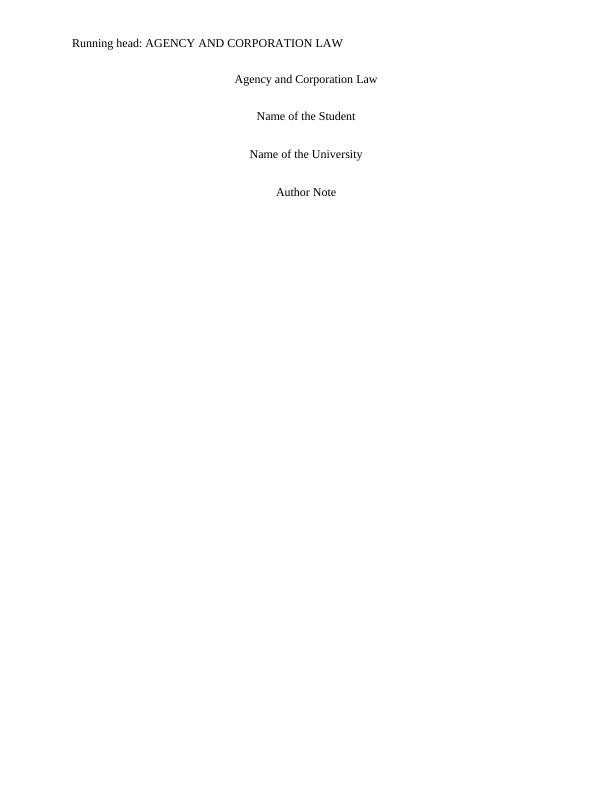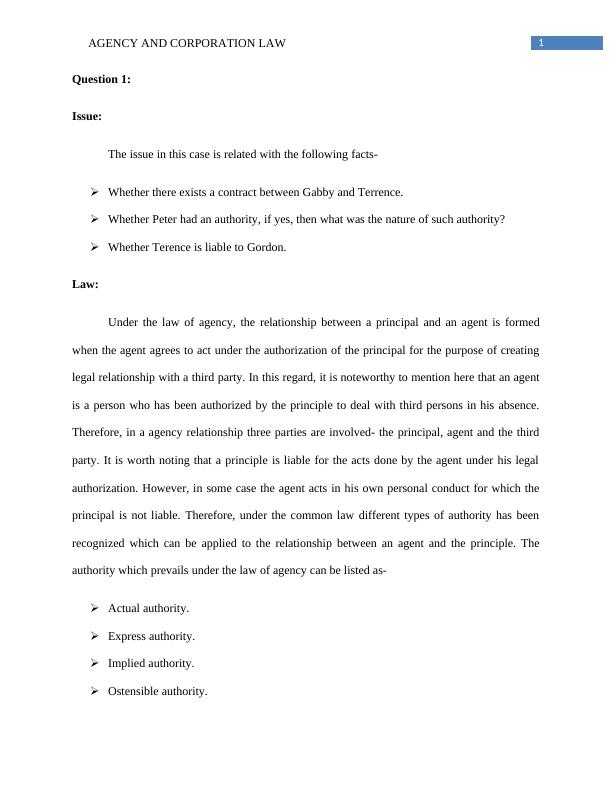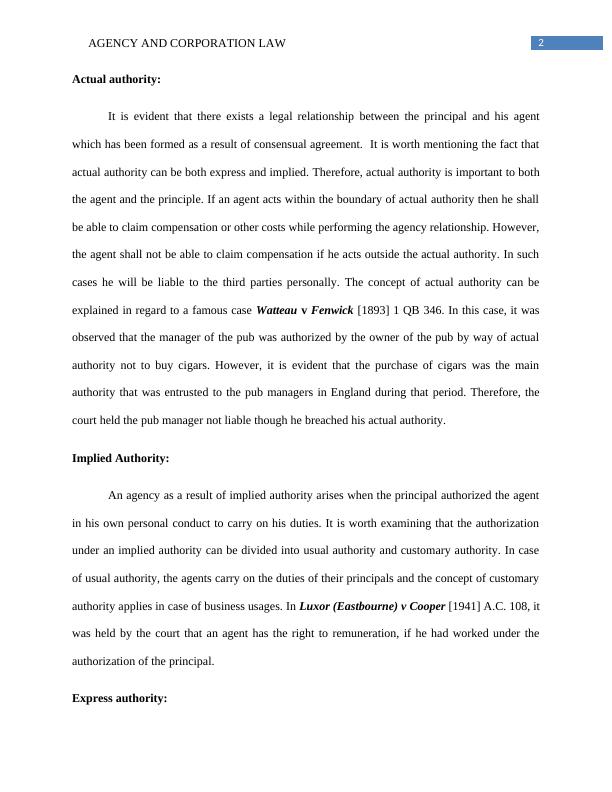Ask a question from expert
Agency and Corporation Law - Assignment
10 Pages2375 Words64 Views
Added on 2021-06-17
Agency and Corporation Law - Assignment
Added on 2021-06-17
BookmarkShareRelated Documents
End of preview
Want to access all the pages? Upload your documents or become a member.
Roxy's Liability and Rights under Agency Law
|5
|1222
|26
Business Law: Authority and Liability in Agency Relationships and Corporate Law
|9
|2191
|294
Corporation Law: Liability of Agents and Lifting of Corporate Veil
|9
|2389
|364
The Assignment on Business and Corporation Law
|12
|2994
|20
Case Study Of Business And Corporation Law
|11
|2489
|33
Commercial and Corporation Law
|8
|2390
|79


